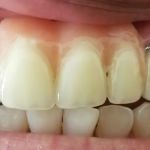
Dental Health Habits to Prevent Common Oral Diseases
Maintaining proper dental health habits is crucial for preventing common oral diseases such as cavities, gum disease, and bad breath. The foundation of good oral health goes beyond just brushing your teeth. It involves regular visits to your dentist, healthy eating habits, and practicing proper techniques to care for your teeth daily. In this article, we will explore various dental health habits that will help you avoid common oral diseases and keep your smile bright and healthy.
- The Importance of Oral Hygiene
- Proper Brushing Technique
- Flossing and Mouthwash: The Dynamic Duo
- Diet and Its Impact on Oral Health
- Regular Dental Checkups
- Preventing Tooth Decay with Simple Habits
The Importance of Oral Hygiene
Oral hygiene is the practice of maintaining a clean mouth to prevent oral diseases. It is one of the most vital habits for keeping your teeth and gums healthy. When food particles, bacteria, and plaque build up in your mouth, they can lead to cavities and gum disease. Ensuring you clean your mouth thoroughly helps prevent these issues.
Brushing your teeth twice a day with fluoride toothpaste and using mouthwash can significantly reduce the risk of cavities and gum disease. Regularly cleaning your teeth helps remove plaque, which is a sticky film of bacteria that forms on your teeth. If left untreated, plaque can harden into tartar, leading to more serious dental problems.
Proper Brushing Technique
When brushing your teeth, technique matters. Brushing your teeth in a circular motion is recommended to avoid damaging your gums. Brushing too aggressively can lead to gum recession, which can expose the roots of your teeth and lead to sensitivity.
Using a soft-bristled toothbrush is also essential to avoid damaging your enamel. In addition, replace your toothbrush every three to four months or sooner if the bristles are frayed. Don't forget to brush your tongue as well, as bacteria can build up there and cause bad breath.
Flossing and Mouthwash: The Dynamic Duo
Flossing is a critical step in removing food particles and plaque that your toothbrush may miss. Gums that are not properly cleaned can develop gum disease, which can lead to tooth loss. Be sure to floss between all of your teeth at least once a day, and use gentle, up-and-down motions to avoid damaging your gums.
Incorporating mouthwash into your routine helps rinse away bacteria and freshen your breath. It can also provide additional protection against plaque and gingivitis. Choose an antibacterial mouthwash that fights germs and prevents gum disease.
Diet and Its Impact on Oral Health
Your diet plays a significant role in your oral health. Foods high in sugar and acidity can contribute to cavities and enamel erosion. Limiting sugary snacks and drinks will help reduce plaque buildup and prevent tooth decay. Foods rich in calcium, like dairy products, help strengthen your teeth and keep them resistant to decay.
Drinking plenty of water throughout the day is essential for keeping your mouth hydrated and helping to wash away food particles and bacteria. Avoiding excessive acidic foods and drinks, such as citrus fruits and soda, will also help preserve your enamel.
Regular Dental Checkups
Visiting your dentist regularly is essential for detecting and preventing oral diseases. Routine checkups allow your dentist to identify early signs of cavities, gum disease, and even oral cancer. Your dentist will also perform a professional cleaning to remove plaque and tartar buildup that regular brushing cannot address.
It is recommended to visit your dentist every six months for a cleaning and examination. Regular checkups will help you maintain optimal oral health and address any concerns before they turn into more significant problems.
Preventing Tooth Decay with Simple Habits
Tooth decay is one of the most common oral diseases, but it can be easily prevented by following simple dental care habits. Along with proper brushing, flossing, and diet, consider using fluoride toothpaste, which can help remineralize your teeth and prevent decay. Avoiding excessive snacking, especially sugary treats, will also help keep your teeth healthy.
Lastly, consider using a mouthguard if you participate in contact sports to protect your teeth from injury. By following these preventive habits, you can reduce your risk of tooth decay and enjoy a healthy, beautiful smile for years to come.







 Rush Family Dental5.0 (161 review)
Rush Family Dental5.0 (161 review) Lafayette Hill Family Dentistry4.0 (5 review)
Lafayette Hill Family Dentistry4.0 (5 review) Steven J. Moravec, DDS, MS4.0 (189 review)
Steven J. Moravec, DDS, MS4.0 (189 review) Sunnyvale Pediatric Dentistry and Orthodontics4.0 (365 review)
Sunnyvale Pediatric Dentistry and Orthodontics4.0 (365 review) New Millennium Dental Group3.0 (30 review)
New Millennium Dental Group3.0 (30 review) By Design Dental4.0 (52 review)
By Design Dental4.0 (52 review) The Importance of Oral Health Education During Pregnancy for a Healthy Pregnancy
The Importance of Oral Health Education During Pregnancy for a Healthy Pregnancy Best Tips for Brushing Your Teeth Properly for Healthy Gums: Essential Techniques for Oral Health
Best Tips for Brushing Your Teeth Properly for Healthy Gums: Essential Techniques for Oral Health Why Skipping Dental Checkups Can Lead to Bigger Oral Health Problems
Why Skipping Dental Checkups Can Lead to Bigger Oral Health Problems Advantages of Porcelain Dental Restorations
Advantages of Porcelain Dental Restorations How Can Diabetes Cause Tooth and Gum Problems? Preventing and Managing Oral Health Issues
How Can Diabetes Cause Tooth and Gum Problems? Preventing and Managing Oral Health Issues Healthy Habits for Promoting Good Oral Health and Hygiene: Tips for a Healthy Smile
Healthy Habits for Promoting Good Oral Health and Hygiene: Tips for a Healthy Smile